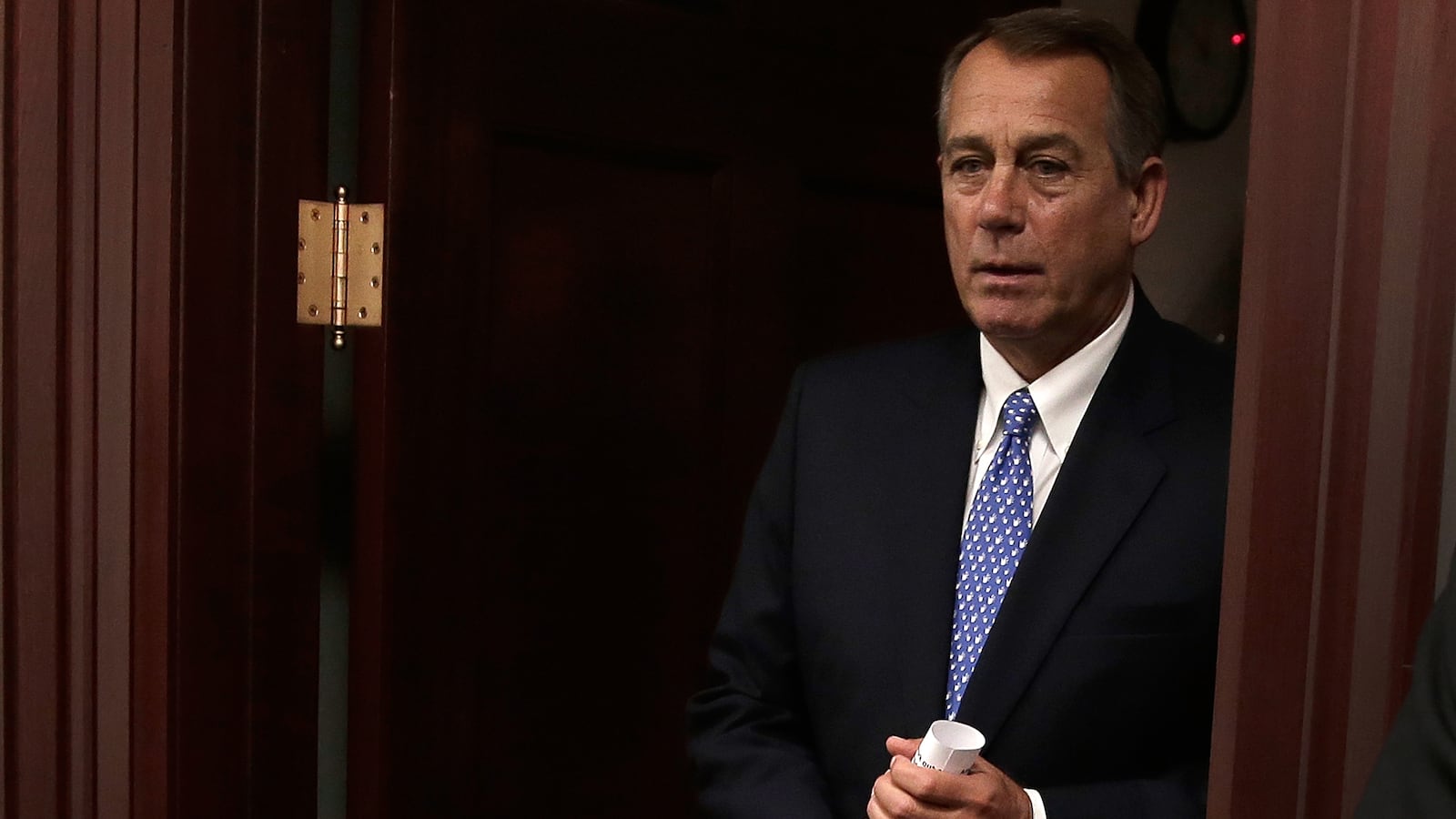Last week, the U.S. Chamber of Commerce declared in favor of a clean, unconditional vote to raise the debt ceiling and reopen the government. The Chamber pledged to support with campaign donations any Republican member of Congress who faced a primary challenge after casting such a vote. The Chamber's decision is not a turn of the tide, but it is a shift in the wind.

I wrote recently about the bad habits among Republicans that have enabled this week's debt crisis, the latest in a long series of crises since 2009. All these crises have had the same fundamental cause: many Republicans have become so radicalized in the Obama years that they are willing to jettison the accustomed rules and norms of politics. Many—but not all.
There has always been a pool of Republicans who have doubted the party's radical turn. Until now, however, these Republicans have been quiet and passive. They came out to vote in 2010, but they did not join Tea Party rallies. They supported Mitt Romney in the primaries because he looked like a potential president, but they did not object when Romney fastened his campaign to the deadweight anchor of the Ryan plan. They look to Speaker Boehner and Leader McConnell to fend off the crazies in the caucus, but they did not understand that those leaders' strategy for "fending off" the crazies consisted of abject appeasement of the crazies.
Some of these more responsible Republicans are waking up at last. More must do so, many more, before the party can again become a positive force in American politics.
It's not enough to condemn the crazies in the company of friends. Responsible Republicans have to act. They have to organize and mobilize. This latest debt crisis exemplifies the problem: to threaten default on the obligations of the United States is simply not an acceptable tool of politics. Instead of making excuses—or rummaging through the record books looking for incidents that can be misrepresented as proof that "everybody does it"—responsible Republicans need to challenge their own party. The party leaders know the right thing to do. They are afraid to do it. Blame the leaders for their faint-heartedness, if you like. But remember, faint-hearted politicians are the norm. In the past, faint-hearted politicians behaved in mostly sensible ways because they were afraid to act recklessly. Today they are afraid not to act recklessly, and the failure of their non-reckless constituents to make themselves heard is a big part of the story of that new fear.
The Republican party is a party of people who have invested deeply in America and who have the most to lose if the American experiment fails. Republicans are the party of married parents, of business and property owners, of the settled and established. Republicans are the party of people who weren't born yesterday, the party of people who've earned their gray hairs the hard way. They're the party of the great middle of the country, of people who don't adopt fads, of people who can afford to worry more about tomorrow because they worry less about today. Will such a party really force a default on national obligations? Even if not, let's tally the political and economic costs to date of Republican radicalism to responsible Republicans:
—By refusing to negotiate Obamacare, radical Republicans ensured that the new program's costs would be financed by taxes on upper incomes and investments.
—By nominating extremist Tea Party candidates in 2010 and 2012, radical Republicans threw away six Senate seats, and with them, control of that body.
—The debt ceiling crisis of 2011 cost the US its triple-A bond rating and dealt a shock to economic growth. According to the International Monetary Fund, the ensuing sequester— "excessively rapid and ill-designed"—will reduce US growth in 2014 by as much as 1.75 points below potential.
—A platform of radical spending cuts for everybody under 55 in order to finance a big upper income tax cut threw away a winnable presidential victory in 2012.
—Defeat in 2012 meant that the fiscal cliff negotiations of that year went all the Democrats' way: the Bush tax cuts lapsed for upper-income taxpayers even as the very costly but less economically useful child tax credits were renewed. Back in 2001, Bush had proposed the credits as necessary to obtain the cuts. A decade later, we have the worst possible outcome: the credits preserved, the cuts gone.
—Polls indicate that the government shutdown is eroding support for Republican congressional candidates nationwide. A second threat of forced default is roiling debt markets and shadowing growth prospects.
When the cartoonist Thomas Nast lampooned Tammany Hall corruption 150 years ago, he added a signature tag-line, originally a quote from Boss Tweed, aimed back at its author: "What are you going to do about it?" It's still a good question, only this time posed to responsible Republicans left aghast by Boss Rush and Boss Cruz.






